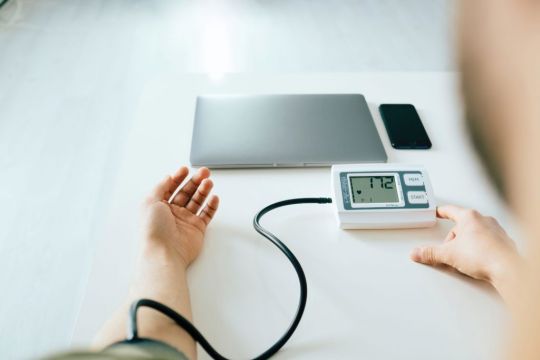Hypochondriacs die earlier those people who are not hypervigilant about health concerns, a study has found.
Hypochondriasis – now known as illness anxiety disorder or health anxiety – is a rare condition with symptoms that go beyond average health worries.
People with the disorder are unable to shake their fears despite normal physical examinations and lab tests.
Some change doctors repeatedly. Others avoid medical care.
“Many of us are mild hypochondriacs. But there are also people on the other extreme of the spectrum who live in a perpetual state of worry and suffering and rumination about having a serious illness,” said Dr Jonathan E Alpert from the Montefiore Medical Centre in New York.
People with the disorder are suffering and “it’s important to take it seriously and to treat it”, said Dr Alpert, who was not involved in the new study.
Treatment can involve cognitive behavioural therapy, relaxation techniques, education and sometimes antidepressants.
Researchers found that diagnosed hypochondriacs have an increased risk of death from both natural and unnatural causes, particularly suicide.
Chronic stress and its impact on the body could explain some of the difference, the authors wrote.
The study, published on Wednesday in Jama Psychiatry, addressed “a clear gap in the literature”, said David Mataix-Cols of the Karolinska Institute in Sweden, who led the research.
“We got lucky,” he said, because the Swedish classification system for health statistics has a separate code for hypochondriasis, allowing data analysis on thousands of people over 24 years, 1997-2020.
Older research had suggested the risk of suicide might be lower for people with the condition, but “our hunch, based on clinical experience, was that this would be incorrect”, Mr Mataix-Cols said.
In the study, the risk of suicide death was four times higher for the people with the diagnosis.
They looked at 4,100 people diagnosed with hypochondriasis and matched them with 41,000 people similar in age, sex and county of residence.
They used a measurement called person years, which accounts for the number of people and how long they were tracked.
Overall death rates were higher in the people with hypochondriasis, 8.5 versus 5.5 per 1,000 person years.
People with the condition died younger than the others, a mean age of 70 versus 75.
Their risk of death from circulatory and respiratory diseases was higher.
Cancer was an exception; the risk of death was about the same.
Referring an excessively anxious patient to mental health professionals takes care, said Dr Alpert, who leads the American Psychiatric Association’s council on research.
Patients can be offended because they feel they are being accused of imagining symptoms.
“It takes a great deal of respect and sensitivity conveyed to patients that this itself is a kind of condition, that it has a name,” Dr Alpert said.
“And, fortunately, there are good treatments.”







